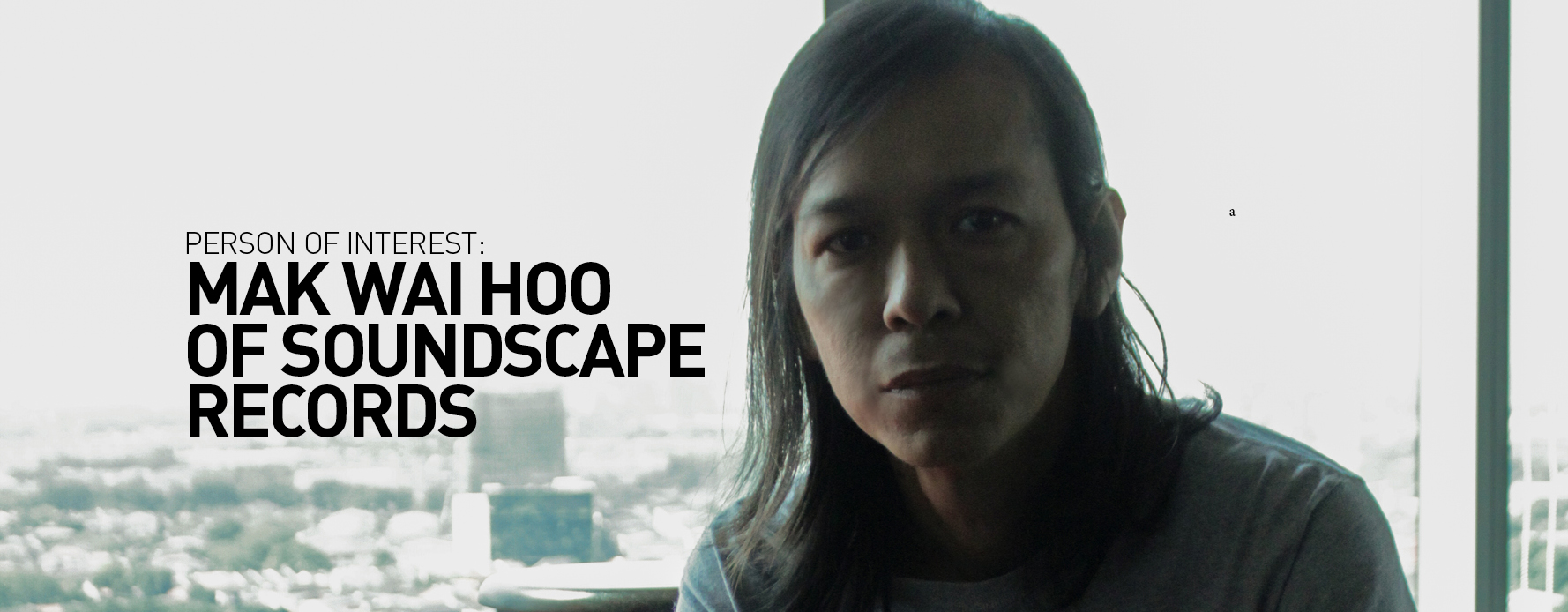Mak Wai Hoo (Soundscape Records): Veteran Connoisseur
 Thirsty for JUICE content? Quench your cravings on our Instagram, TikTok and WhatsApp
Thirsty for JUICE content? Quench your cravings on our Instagram, TikTok and WhatsApp

He’s seen it all and done it all. Mak Wai Hoo has been around since the birth of the contemporary music scene in Malaysia as we know it (even before JUICE was birthed) and he’s since continually strived to make it the best that it can be with Soundscape Records – a label that also acts as an event promoter. While initially more centred on Malaysia’s burgeoning Chinese indie scene, Mak has expanded his reach to the bigger urban market, bringing the likes of post-rockers Explosions in the Sky and more recently live electronica-ambient act Tycho to our shores. JUICE talks to the man about the continually shifting paradigms of music, how he’s forged Soundcape into the scene, and of course, his favourite type of JUICE…
To the uninitiated, what is Soundscape?
Well, next year is to be our fifteenth year around, as we started in the year 2001. Before this, I had another label – a Chinese-based label that was around from 1998 till 2000. There were some internal problems, and eventually I left and started Soundscape. Soundscape was originally supposed to be a Chinese label as well – at the beginning we only worked with Chinese-singing bands. It’s nothing racial, it’s just that the Chinese scene in general then was more towards the pop side; the Cantopop scene. So, we decided to start this thing called ‘the small little movement’, because at that time people always talked about ideologies and the like (10 or 15 years ago). We started this to contend with the mainstream, so that people could have an alternative option, something different from what was out there on the radio.
How did it evolve into what it is today then?
After several years of promoting the Chinese-singing bands, we found it difficult to overcome the radio-friendly obstacle, because many people still couldn’t change their mindset. The gigs that we did and the albums that we put out didn’t do very well. In fact, after the second or third year, we found it difficult to carry on because we couldn’t get enough bands – we couldn’t find even ten bands to do shows. And even then, they wouldn’t sell well. But actually before then, I started this series of festivals with Tiger Beer called the Street Roar and the Transregional Sound where we pulled in bands from around the region. It was a large-scale outdoor festival that we did for three years. And from there, we moved on.
Were you always doing music on a full-time basis?
No, I worked with the Nanyang Group on the advertising side for about ten years. But even then, I was running the label part-time. When I first started bringing in international acts, I slowly started to focus more on the label.
What do you do on the side then?
Taking care of my kids! I got a newborn just a couple months ago. But I still do licensing, releasing and distribution on the side too. We’ve got plans to turn the studio into a live space as well by March.
How do you find the scene as how it is today, compared with what it was 15 years back?
It’s very different, definitely. We started bringing in international acts in 2006, and we did very well for the first few years with bands like Explosions in the Sky and Mogwai. But after the first three or four years, we found it hard to maintain the momentum. Things started to change, and from there I spent some time figuring out what went wrong. I think the people who came to our shows then grew up, I guess. But we didn’t realise that then, and thought we could carry on with what we had. Last year, we tried something different – we brought in bands like Warpaint, for example. More hip, so to speak. I hate to use this word, but you have to bring in bands that are ‘hip’ to attract all these consumers.
What are your plans for Soundscape this year then, after your initial foray into the more ‘hip’ side of things?
We’re planning to get more Japanese bands, because if you’ve noticed, we have been doing that over the past few years – [bringing] Asian bands in general. And this is why we approached the Japan Foundation. From May onwards we’ll be working with them and perhaps come up with a series or a theme so that we can do it on a quarterly basis.
A final question! What’s your favourite kind of JUICE?
Is yogurt a type of juice? Yogurt.
facebook.com/soundscape-records
soundscape-records.com

 Get Audio+
Get Audio+ Hot FM
Hot FM Kool 101
Kool 101 Eight FM
Eight FM Fly FM
Fly FM Molek FM
Molek FM